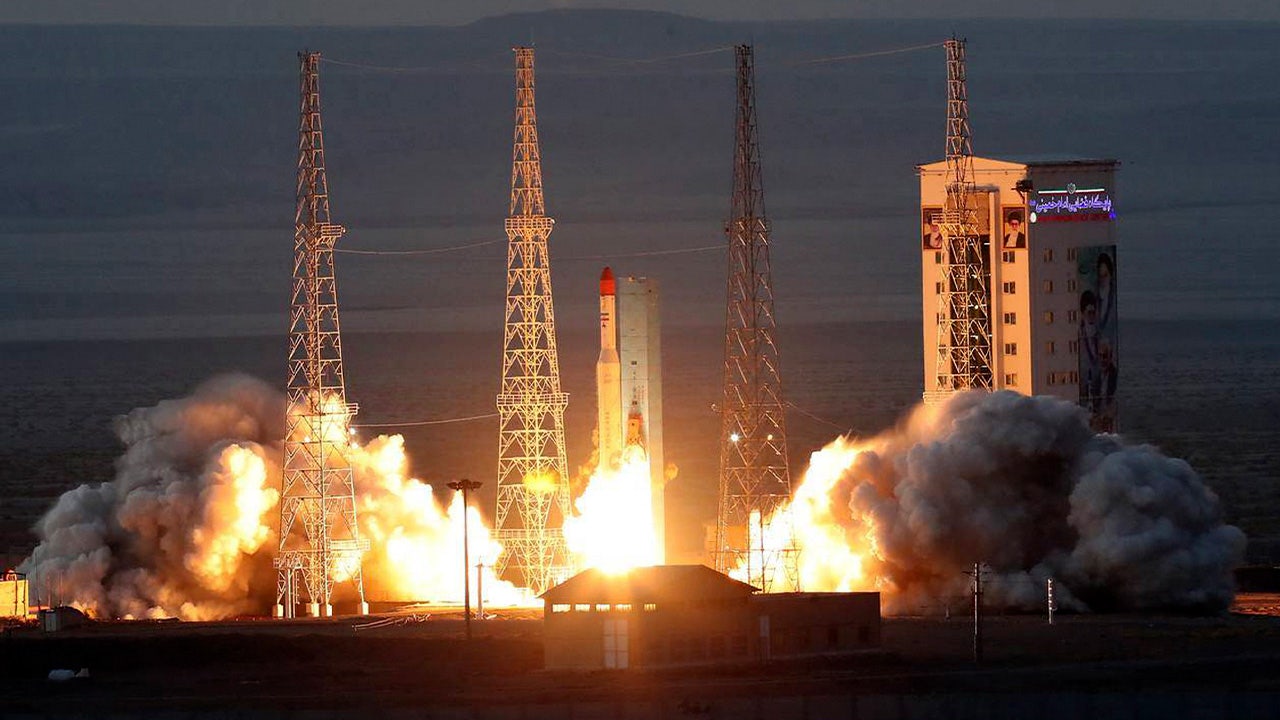Amid heightened concern over its nuclear program, Iran launches rocket with heaviest-ever payload into space.
A US intelligence agency warns that Iran could potentially possess over a dozen nuclear weapons if the uranium is further enriched.

On Friday, Iran launched its heaviest rocket into space, with a payload of approximately 660 pounds. Security experts are concerned that this could signal the development of technology that could be used for its nuclear program.
The Simorgh rocket launch coincided with an announcement by IAEA Director General Rafael Grossi, who stated that Iran has "drastically" increased its enriched uranium stockpiles, which are rapidly approaching weapons-grade purity, as reported by Reuters.
The heightened concern over Iran's nuclear program persists as tensions with the West intensify due to Iran's involvement in two major international conflicts and its support for terrorist organizations targeting Israel, as well as its aid to Russia during its invasion of Ukraine.
According to Behnam Ben Taleblu, a senior fellow with the Foundation for Defense of Democracies and author of the report "Arsenal" on Iran's ballistic missile program, Iran's successful rocket launch is not just a victory for its space program.

The Seymour is a liquid propellant carrier rocket that represents the Islamic Republic's efforts to utilize both its liquid and solid propellant carrier rockets as a stepping stone to accelerate the development of a longer-range system, according to the official.
An orbital propulsion system and two research systems were carried by a rocket launched from Iran's Imam Khomeini Spaceport, located 130 miles from Tehran.
Reports suggest that Iran will be able to maneuver satellites into a higher orbiting attitude with the help of the system, a capability that Iran has long sought.
The rocket reportedly carried a Fakhr-1 satellite for Iran's military, marking the first time an Iranian civilian program has carried a military payload.
"The Islamic Republic's government has demonstrated its ability to multitask by advancing both its liquid propellant space program, led by its Iranian space agency, and its solid propellant space program, led by the IRGC aerospace force. Both of these space programs have direct military applications, as explained by Ben Taleblu."

Despite evidence from the International Atomic Energy Agency (IAEA) showing that Iran was not advancing its nuclear program, the US withdrew from the international Iran Nuclear Agreement in 2018 due to Iran's long-standing violation of U.N.-mandated bans on its ballistic missile program.
The development of space and missile technology by Iran has long been a concern for Western nations, as it increases the possibility of Iran launching a nuclear weapon if it were to acquire one.
The ODNI reported in November 2024 that the U.S. continues to assess that Iran is not building a nuclear weapon.
This year, the IAEA cautioned that Iran has boosted its inventory of highly enriched uranium metals beyond 20% purity levels to 60%, which is close to weapons-grade uranium that is enriched to 90% purity.
According to the ODNI's assessment from last month, Tehran has the capability to create "more than a dozen" nuclear weapons if its uranium is further enriched due to its existing stockpiles of enriched uranium.

The agency observed that Iran employs the threat of nuclear weapons as a bargaining chip and to discourage foreign pressure, which is also its strategy with its space program.
"The Islamic Republic Space Program gives the regime the same benefits as its nuclear program, which are status and security," said Ben Taleblu. "We should be more concerned about these launches given the context of the regime threatening to use its nuclear weapons."
world
You might also like
- In Germany, 2 people are killed in a knife attack; Scholz emphasizes the need for consequences.
- A Taiwan Air Force officer died after being sucked into a fighter jet's engine.
- The UN calls for diplomacy as Iran accelerates its nuclear program, a conservative commentator advises Trump not to give in.
- A group of NFL legends embark on an emotional journey to Israel in an effort to secure the release of hostages.
- Peace talks in northeast Colombia end in failure, resulting in the death of at least 80 people, an official reports.



















